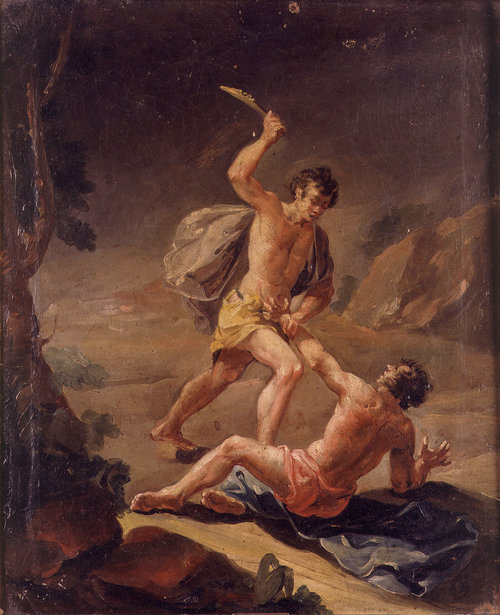“The Lord looked with favor on Abel and his offering, but on Cain and his offering he did not look with favor. So Cain was very angry, and his face was downcast.” (Genesis 4:5 NIV)
Cain did not accept personal responsibility for his shortcomings. Instead of acknowledging his sin or his less-than-best, he blamed his brother for offering something better.
Cain could have received God’s feedback. He could have recognized his bad attitude, repented and brought a better sacrifice. He could have viewed his brother as a godly example, not an adversary. He could have learned from his mistake and made it right.
Instead, Cain compared himself to Abel, came up short and removed the competition through violence.

We do this. Now, we may not murder our brother, but we certainly assassinate their character when God is really just looking to deal with us. We don’t get to sit as judge and jury over others: we are only allowed to agree with a verdict on our own thoughts and motives.
It is far easier to assess and blame others than ourselves. The thing is: we cannot change others. We can only change us. Cain’s big issue was that he tried to change the circumstances rather than the more critical work of changing his own heart. When Cain ignored God’s outright warning and proceeded in his own strength and anger; the situation deteriorated even further. Cain murdered his own flesh and blood. To put it in perspective: he took out a fourth of the planet’s population in a single outburst.
Even after first degree murder, Cain refused to take responsibility for his actions. He was banished: cursed to be a homeless drifter upon the earth. Banished from his family, but banished from God’s presence, too. (His poor mother, she suffered two deaths that day!)
Our failure to take personal responsibility removes us from God and others. When everything is everyone else’s fault, we move further and further from intimacy. We wind up in a lonely land and we beget selfish and violent people, as Cain did.
On the other hand, when we accept personal responsibility, it grows us up; both with God and others. Our ability to recognize and address our shortcomings makes us more likable and approachable people. Humility movs us closer to God and others.
We can learn a lot from Cain. His example is extreme, but accurate. Blaming others will eventually drive us away from everyone and everything we love, while owning up to our thoughts and actions will eventually transform our character: pulling God and others even closer.
“For we must all appear before the judgement seat of Christ, so that each of us may receive what is due us for te things done while in the body whether good or bad.” (2 Corinthians 5:7 NIV)
One day we will have to give an account. We won’t be able to hide or lie or cover up what we’ve done. We do ourselves a favor when we recognize our failings today, whilst something still can be done about them. God offers a better way; He asks questions but He also offers feedback. If we’ll confess, He’ll redirect us toward righteousness and we’ll begin to look more like Him in the meantime.
Lord, please forgive us for all the times we’ve blamed others for our own failings. Help us to perceive ourselves accurately; warts and all. We want to grow up in You. We long to have better relationships with others, too. Give us the courage to face our failings. Meet us with grace and wisdom. Walk us out of trespass and into a more righteous existence with You. Amen.